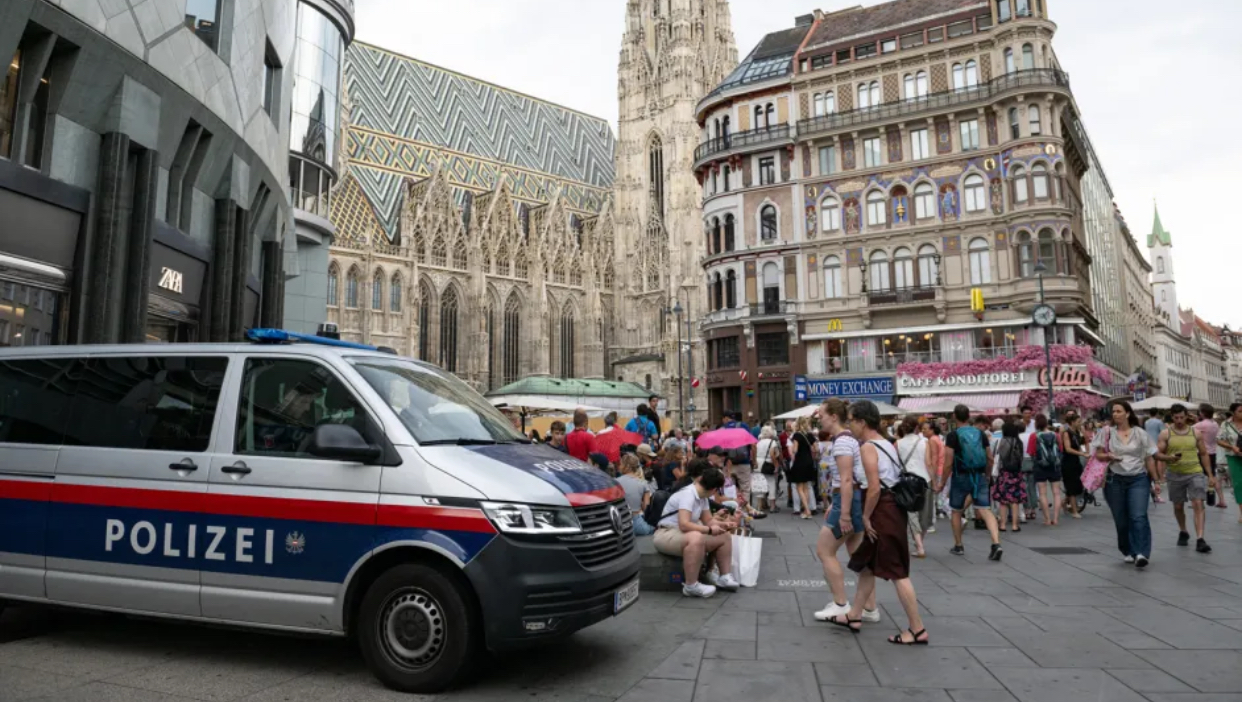NFL
“Terror Unleashed in Vienna: Suspect Charged in Diabolical Plot to Bomb Taylor Swift’s Iconic Concert Shocks the World!”

In a chilling revelation that has sent shockwaves across the globe, German authorities have charged a suspect in connection with a foiled plot to bomb Taylor Swift’s highly anticipated Eras Tour concert in Vienna last August. The announcement, made on Friday, June 27, 2025, marks a dramatic escalation in a case that forced the cancellation of three sold-out shows and left fans reeling from the specter of a potential massacre. Identified only as Mohammad
A, the young Syrian national faces charges of supporting a foreign terrorist organization, thrusting the world’s spotlight once again onto the persistent threat of extremism.
A Diabolical Plan Thwarted
The plot, initially uncovered by Austrian authorities with critical assistance from U.S. intelligence, targeted Swift’s concerts scheduled for August 8-10, 2024, at Vienna’s Ernst Happel Stadium. The main suspect, a 19-year-old Austrian with North Macedonian roots named Beran A, had allegedly planned a suicide attack aimed at killing as many people as possible. Authorities revealed that bomb-making materials, including chemical substances and technical devices, were found at his home in Ternitz, south of Vienna, during a raid that evacuated over 60 nearby residences. Mohammad A is accused of aiding this sinister scheme by translating Arabic bomb-making instructions and facilitating online contact with an Islamic State (IS) member.
German prosecutors allege that Mohammad A adhered to IS ideology by April 2024 and collaborated with Beran A between mid-July and August 2024. His role reportedly included drafting an oath of allegiance to IS, which Beran A used to formally join the group. This international dimension underscores the coordinated nature of the threat, raising questions about how such young individuals become radicalized and the adequacy of current counterterrorism measures.
A Concert Turned into a Crime Scene
The Vienna concerts were expected to draw over 65,000 fans per night, with an additional 10,000 to 15,000 gathering outside the stadium, creating a prime target for a mass casualty attack. Austrian officials described the plot as inspired by IS and al-Qaeda, with Beran A confessing to intentions of using explosives and knives to unleash a “bloodbath.” The 17-year-old second suspect, employed by a company providing services at the venue, was arrested near the stadium, adding to the alarm. A third suspect, an 18-year-old Iraqi, was later detained, though details remain sparse.
The gravity of the situation prompted swift action. On August 7, 2024, just a day before the first show, concert organizers Barracuda Music, in coordination with Swift’s team, canceled all three performances, citing safety concerns. The decision devastated fans who had traveled from across the globe, many spending thousands on tickets and travel, only to face refunds and dashed dreams. Austrian Chancellor Karl Nehammer defended the cancellation, stating, “The arrests took place too close to the scheduled concerts to allow them to go ahead,” emphasizing that “safety had to come first.”
Swift’s Silence and the Global Ripple Effect
Taylor Swift, known for her rare cancellations, has yet to comment directly on the recent charges, though she previously expressed profound guilt over the Vienna cancellations in an Instagram post after her European tour concluded. “Having our Vienna shows canceled was devastating,” she wrote, adding, “The reason for the cancellations filled me with a new sense of fear.” Her team’s decision to prioritize safety over spectacle highlighted the seriousness of the threat, a move praised by officials but mourned by her global fanbase, the “Swifties.”
The plot’s foiling, credited to intensive cooperation between Austrian police, U.S. intelligence, and other foreign agencies, prevented what could have been one of the deadliest attacks on a public event in recent years. Comparisons to the 2017 Manchester Arena bombing, where 22 died during an Ariana Grande concert, and the 2015 Bataclan attack in Paris, which claimed 130 lives, loom large. The Vienna case has reignited debates about the vulnerability of mass gatherings and the role of online radicalization, particularly among teenagers.
Unanswered Questions and Lingering Fears
While the immediate danger was averted, the charging of Mohammad A in Germany raises new concerns. Unlike the initial suspects, he is not currently in custody, leaving some to question the robustness of the response. Critics argue that the reliance on international intelligence and last-minute interventions highlights gaps in proactive monitoring, especially as IS continues to inspire attacks despite its territorial losses. Posts on X reflect a mix of relief and unease, with some users warning of a growing Islamist threat in the West, though such sentiments remain inconclusive without further evidence.
Austrian authorities have maintained that no additional suspects are being sought, but the involvement of a Syrian national in Germany suggests a broader network may still be at play. The psychological toll on fans, many of whom gathered in Vienna to sing and trade bracelets despite the cancellations, underscores the cultural impact of Swift’s tour—and the fragility of such moments in an era of terror.
LISPRINCE












